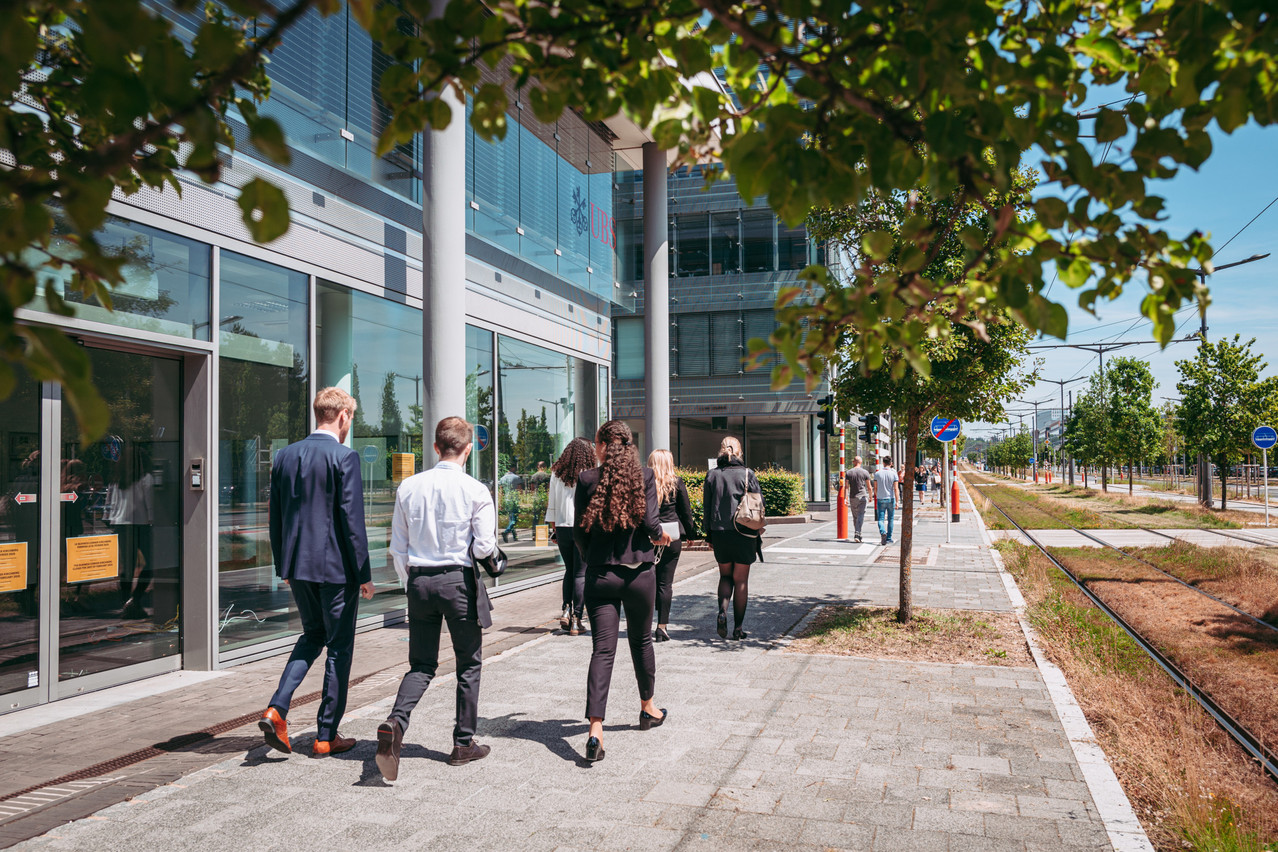Collectively, our interviewees have also worked in Ireland, the UK, the Netherlands, the US, Switzerland, France, Belgium, New Zealand and Italy; and their experience in Luxembourg covers the finance, engineering, education and government sectors.
Dress codes are formal and conservative, and not extremely stylish. Most Luxembourgers strive for a classic and sophisticated look.
David: I think I would agree with this statement in general, even just based on my commute. My office had a pretty informal dress code (read: engineers), although certain nationalities definitely put in more effort than others!
Fabian: I agree with this, but I think this matches the norm for Western Europe. Most people dress conservatively, matching the muted and grey colours of the landscape.
Kelley: The sharp dress was one of my favourite aspects of working in Luxembourg. I find that I’ve brought that back with me to the US—even ten years in, I’m still more formally dressed than my American peers.
Alexis: I agree. My colleagues often opted for classic looks that used obvious matching schemes although some opted for bolder colours.
Giulia: I believe this statement reflects the dress code habits.
In business contexts, formal behaviour (e.g using titles and surnames) is the norm.
David: I would disagree with this, I generally found client calls and meetings to be relatively informal. I would rarely, if ever, address a client by their title or surname. There was, however, typically a round of awkward introductions for nearly every client call, even when everyone already seemed to know each other.
Fabian: At our company, formal behaviour was normal but we had a “du/tu” culture, meaning that everyone was addressed by their first names. This seems to be the norm in international (read: Anglo-centred) firms.
Kelley: As (usually) the only American on the team, I was initially surprised by the formality amongst colleagues. It took me a few weeks to realise I was the only one calling the boss by his first name, instead of using his more formal title.
Alexis: I disagree. At both the university and the secondary school where I worked, teachers greeted each other by first name.
Giulia: I have experienced both, very formal but also very easy-going and informal, depending on the company culture and the sector.
Meetings are brief and without much small talk. Major decisions are usually taken prior to the meeting.
David: Meetings were typically between 30 minutes and one hour. It’s true that important decision-making would typically occur before or after the meeting by managers, leaving you the feeling that some meetings were just for show.
Fabian: I disagree with this, I found most meetings to be a mixture of personal catch-ups and actual decision making. I think it all depends on your team, though.
Kelley: In my experience, meetings in Luxembourg were viewed as intentional time to thoughtfully discuss projects and team progress. They were unrushed and included light personal conversation. It never felt like small talk, per se, but more like polite conversation, inquiring about how things were going.
Alexis: I disagree. I worked as part of a small university teaching team that had lots of long conversations and small talk. We had personal relationships that went beyond work. I shared an office with the professor I worked with; our work-related conversations could easily turn personal. The professor made the major decisions, but otherwise we had a very collaborative process.
Giulia: Meeting are organised in a very efficient manner: going straight to the point, addressing challenges, making decisions and agreeing on actions (and following up on them later).
Luxembourgers are prudent and rational in business. They don’t welcome emotional outbursts, assertiveness or boasting.
David: I don't have much experience with this specifically as the majority of my clients were French/Belgian. However, my impression is that the above is true, particularly regarding boasting. Slow, careful planning seemed to be the order of the day. P.S. Business cards everywhere!
Fabian: I agree, my experience in Luxembourg was that being a bit more reserved or low-key, especially in business matters, was totally normal. After having lived in Switzerland, however, I think that it’s not nearly as extreme in Luxembourg as some might think.
Alexis: I agree.
Deadlines are taken seriously. Punctuality, too—even in social contexts.
David: Deadlines were definitely taken seriously—lengthy calls with managers and clients providing reasons for potential delays were often required. Working hours also had to be respected. If a manager called at 5:55pm then you were expected to answer (the train home can wait!).
Fabian: I fully agree with this: deadlines tend to be respected and punctuality as well.
Giulia: Yes, I can definitely confirm that. Coming from a country with a Mediterranean culture I have noticed the different approach with regards to deadlines and punctuality.
